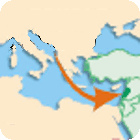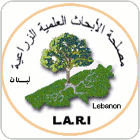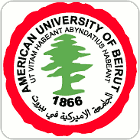Plant breeding programs in Lebanon
 Agriculture plays a significant role in Lebanon’s national economy; it contributes about 12% of the GDP. The diversified Lebanese climate allows the cultivation of several crop species. Nonetheless, there has been little support given by the government to the agricultural sector. The country is facing very difficult financial problems since the end of the war in 1991 and the launch of the reconstruction of Beirut downtown which was completely destroyed during the 16 years of civil war. This had led to big financial debit that is forcing the government to make major budget cuts in all their institutions and is limiting the employment in the public sector.
Agriculture plays a significant role in Lebanon’s national economy; it contributes about 12% of the GDP. The diversified Lebanese climate allows the cultivation of several crop species. Nonetheless, there has been little support given by the government to the agricultural sector. The country is facing very difficult financial problems since the end of the war in 1991 and the launch of the reconstruction of Beirut downtown which was completely destroyed during the 16 years of civil war. This had led to big financial debit that is forcing the government to make major budget cuts in all their institutions and is limiting the employment in the public sector.
Public agricultural research in Lebanon dates back to the establishment of the Lebanese Agricultural Research Institute (LARI) in 1957. LARI is still the main actor concerning plant breeding in the country. The only other plant breeding programs are housed at the Faculty of Food and Agricultural Sciences of the American University of Beirut (FAFS/AUB) and in some small private companies, but their programs are smaller compared to LARI’s. Other faculties of agriculture are teaching conventional and modern plant breeding at their universities, but they do not have a breeding program. Lebanon is a small country but is rich in biodiversity. However, there is poor ex-situ conservation of genetic resources due to the absence of a national gene bank.
In areas receiving adequate amounts of rainfall, breeding efforts for cereals and grain legumes are concentrating on maximum yield potential under highly favorable environments, in addition to breeding for tolerance to major biotic and abiotic stresses such as cold and frost. In low rainfall areas, the priority is given to tolerance to drought, lodging, pod shattering and resistance to biotic and abiotic stresses. Wheat, barley, forages, grain legumes and potato were the main crops in Lebanese breeding programmes since the 1990s. However since 2005 an increased importance for fruits and vegetables is observed.
Limitations facing the breeding programs in Lebanon are mainly the financial resources to support plant breeding and use of biotechnology. Inadequate infrastructure and insufficient number of qualified and motivated field technicians are also a major issue. The absence of plant breeder’s rights and competitive salaries is not encouraging qualified breeders to work in the country, especially in the public sector. All in all, the number of plant breeders in Lebanon does not exceed 20.
Research and education institutes with activities in plant breeding
Public Institutes
|
|
Lebanese Agricultural Research Institute (LARI)
|
|
|
National Council for Scientific Research in Lebanon (CNRS)
|
Private Institutes
|
|
American University of Beirut (AUB)
|
|
|
JUNO Tissue Culture Lab.Juno is a small private tissue culture laboratory dealing with micropropagation of ornamentals and a few agricultural crops such as banana and potato. The company is commercial in nature but does carry out a few research activities to test and exploit new and effective multiplication techniques for several agricultural and ornamental crops. Their main mandate is the production of pathogen-free seedlings and mini-tubers for the Lebanese market and other foreign markets as well. |
|
|
Hoyek CompanyHoyek tissue culture laboratory is a small private company established in 1994 and deals mainly with micropropagation of ornamental plants and few agriculture crops such as banana and pineapple. The company is commercial in nature but do carry out few research activities to test and exploit new and effective multiplication techniques for several agricultural and ornamental crops. Their main mandate is the production of pathogen- free seedlings to the Lebanese market and other foreign markets as well. |
Information by Hassan Machlab (2006) - Information based on the Lebanon's full report from the PBBC survey. Last revised 20-07-2009, GIPB




